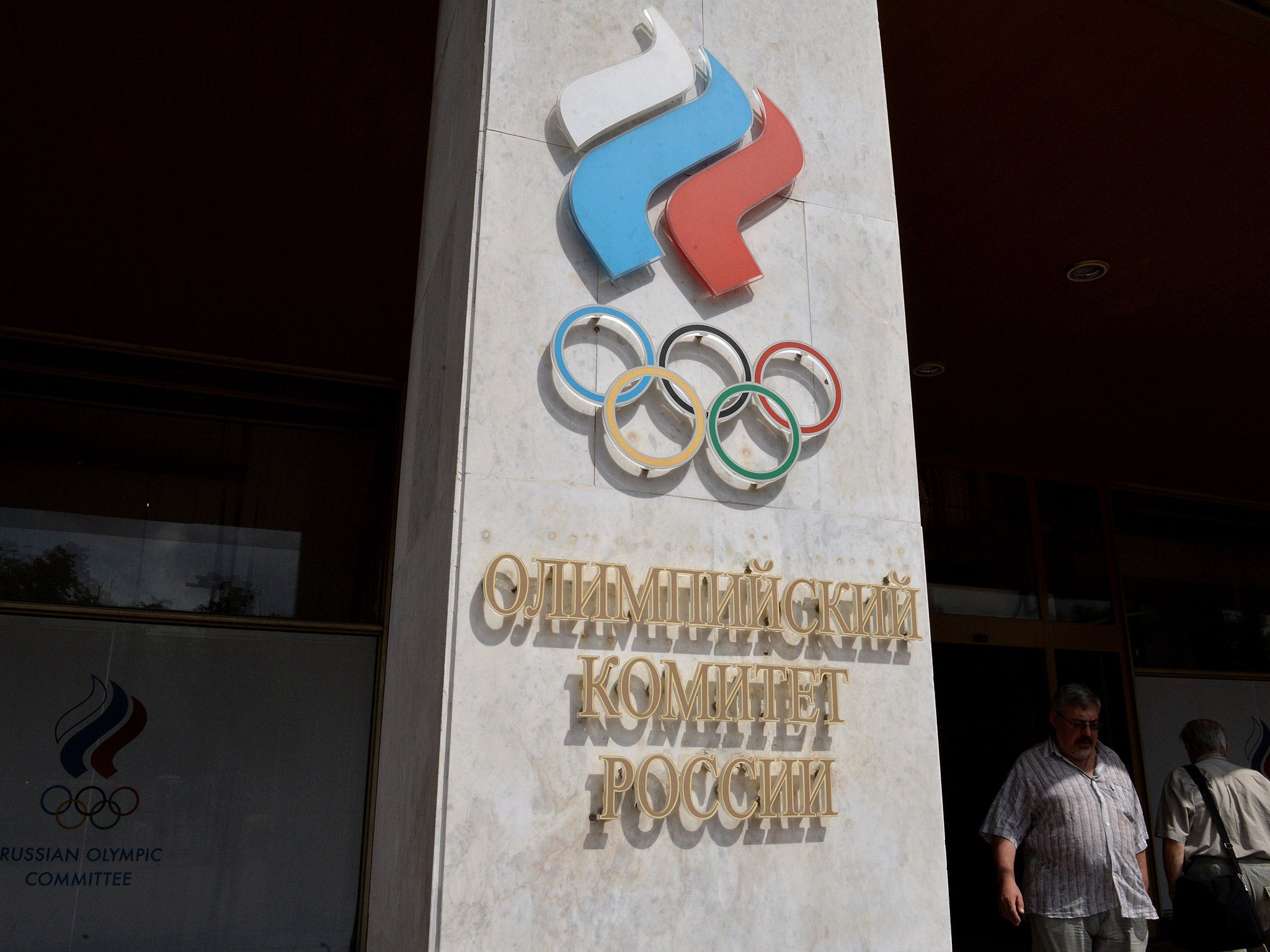Rio 2016: IOC decision condemned after deciding not to impose ban on Russia
The International Olympic Committee has decided to leave the decision on whether to ban Russian athletes from Rio 2016 to individual sport federations

The International Olympic Committee's refusal to ban Russia from the Rio Games was widely condemned by anti-doping agencies and athletes on Sunday.
Despite calls for Russia to be thrown out of the Games for running a state-directed doping programme, the IOC opted against a blanket ban and asked each sport to vet proposed Russian competitors individually.
The decision was swiftly criticised by United States Anti-Doping Agency (Usada) chief executive Travis Tygart, who said the IOC had missed a chance to assert its leadership and left behind "a confusing mess".
While World Anti-Doping Agency [Wada] president Sir Craig Reedie said he was "disappointed the IOC did not heed" his organisation's call for a blanket ban.
One of Reedie's predecessors as Wada boss, and fellow long-term IOC member, Dick Pound told CNN that the IOC had "squandered a huge opportunity to make a statement".
Athletics, the Olympics' largest sport, has already vetted Russian competitors, with only one US-based Russian now likely to take part in Rio's track and field programme.
But Tygart, who led the investigation that brought down disgraced cyclist Lance Armstrong, believes the IOC should be taking responsibility for clean sport.
"The decision regarding Russian participation and the confusing mess left in its wake is a significant blow to the rights of clean athletes," said Tygart, expressing a view that was supported by several national anti-doping agencies.
British athletics' five-time Olympian Jo Pavey, world marathon record-holder Paula Radcliffe and British javelin record-holder Goldie Sayers all vented their fury with the IOC stance via social media, and British Olympic rowing champion Mark Hunter told the BBC he was "sickened" by it.
With Rio's opening ceremony less than two weeks away, many critics have asked how the other 27 federations that govern sports in the summer programme will have the time or resources to do what the International Association of Athletics Federations (IAAF) spent months planning.
The IOC's decision means each sport will have to make an "individual analysis" of every Russian competitor, which will then be subject to approval by an "independent arbitrator" from the Court of Arbitration for Sport (Cas).
The International Tennis Federation has already said the Russian players nominated for Rio have been subject to a total of 205 drugs tests since 2014, and will be allowed to play.
Cycling's world governing body may follow suit, with president Brian Cookson saying it would be "difficult for us to ban an entire team".
IOC president Thomas Bach has consistently argued against collective punishments, despite more information emerging about the scale of the cheating and the state's central role in it.
In defence of his board's decision, Bach said: "We have reversed the presumption of innocence for Russian athletes, making them assume collective responsibility.
"But natural justice requires that individuals have the chance to rebut this reversal. So we have set the bar by establishing strict criteria that every Russian will have to fulfil.
"We have balanced the desire for collective responsibility against the right for individual justice."
But the trained lawyer may have created more uncertainty with the decision to block Russia from proposing any athlete who has served a ban before, a clear case of "double jeopardy" that has already been challenged at Cas before.
Russians have poured scorn on the idea of American athletes with histories of drug suspensions, such as Justin Gatlin and Tyson Gay, being allowed to compete while Russians with similar pasts are barred.
One athlete who may consider fighting this is 800m runner Yuliya Stepanova, one of only two Russians to be cleared to compete by the IAAF who finds herself banned again by the IOC.
Stepanova and her anti-doping expert husband, who are now in hiding in the US, were the first two whistle-blowers to inform Wada and journalists about Russia's cheating, but she has served a two-year doping ban.
Bach said the IOC was "expressing its gratitude" to Stepanova by inviting her and her husband to Rio as guests.
But Tygart voiced the feelings of many when he said: "The decision to refuse her entry is incomprehensible and will undoubtedly deter whistle-blowers from coming forward."
Without them, Pound would not have started his 2015 investigation into Russian doping in athletics and Canadian law professor Richard McLaren's more recent probe into the 2014 Winter Olympics and wider doping conspiracy would have been impossible.
For Russia, the IOC's compromise was probably the best they could have hoped for.
"Today the IOC showed a balanced approach," Russian sports minister Vitaly Mutko said on Sky News.
"An objective decision has been made as regards our country - it's a just and fair decision and we hope every federation will take the same kind of decision."
PA
Subscribe to Independent Premium to bookmark this article
Want to bookmark your favourite articles and stories to read or reference later? Start your Independent Premium subscription today.

Join our commenting forum
Join thought-provoking conversations, follow other Independent readers and see their replies